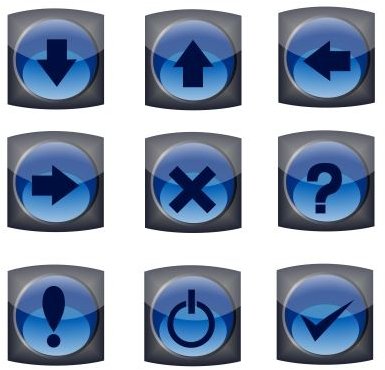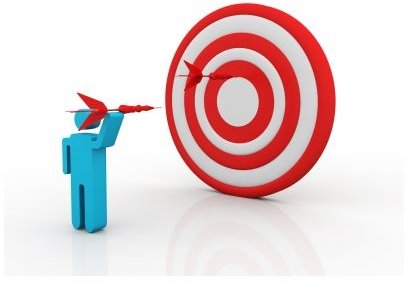A Guide to Career Planning using Goal Setting and Self Appraisals
Goal Setting
Goal setting is a basic step of the career planning exercise. Setting effective goals require self-appraisal of one’s own strengths and weaknesses to choose the appropriate career path.
Implementing such goals requires indulging in honest self-appraisals to evaluate the extent of goal fulfillment, inculcating that right blend of teamwork and individuality to excel at work and create a strong career portfolio, and knowing when it is time to move on to make good career moves.
Goals provide direction, purpose and clarity to what is required. Goal setting allows one to prioritize and to focus on key issues. A study by Locke et al. (1981) concludes that the presence of goals improves performance.
- Goal Setting Defined
- The Importance of Goal Setting
- The Art of Effective Goal Setting
- Ten Inspiring Quotes About Goal Setting
- Ten Key Essentials for Achieving Your Goals
- Explaining the Concept of SMART Goals with Examples
- Tips for Job Seekers Over 50: Setting Smart Goals for Your Future
- How to Avoid the Rat Race and Still Be Successful
How to Set Effective Goals
Goal setting involves establishing specific, measurable, achievable, relevant, and time bound objectives, or tasks to complete. Such goals help to change behavior and achieve the desired results. The best goals are set with the end in mind and are tuned in to realities. They are practical and flexible enough to seize opportunities or remain compatible with the times.
The Internet has simplified goal setting. Many tools and other resources not only offer insights on how to set effective goals but also aid in the process. Adopt the best approach and select the most relevant tools and resources from the comprehensive listings included in these articles:
- Set Better Goals By Using Action Words and Phrases
- Goal Setting Tips Plus Downloadable Worksheet
- Making a Plan and Setting Goals: Use These Top 10 Strategies
- 10 Goal Setting Strategies for Work-at-Home Moms
- Useful Goal Setting Examples for the Home Office Worker
- 10 Free Goal-Setting Freeware Tools
- Tips to Set SMART goals
- A Worksheet for Preparing SMART Goals
Self-Appraisal
An appraisal in its barest sense mean the act of assessing someone or something. Performance appraisals, or the periodic assessment of an employee’s performance, are a regular feature in any organization.
Many organizations incorporate self-appraisals, where knowledge workers assess their own strengths, weaknesses, and performance standards. Even without such formal assessments, career minded individuals would do well to undertake periodic self-assessments to understand where they stand.
The core of the self-appraisal exercise is reflection on one’s progress on a laid down plan or the extent of fulfilling the stated or desired objectives. Success depends on honesty and a genuine desire for self-improvement. When undertaken properly, it remains the best indicator of skills that need improvement and methods or approaches that require reconsideration.
- Self-Appraisal Time? What Should You Say or Write?
- Great Phrases to Use When Writing a Self Assessment Evaluation
- Example of a Job Self Evaluation
- How to Complete an Employee Self Evaluation
- Conducting a 360 Degree Evaluation: Helpful Template for Getting Started
Career Portfolio
A career portfolio is a collection of key events or achievements in an individual’s career history and includes among other things:
- Summary of projects executed
- Performance reviews
- Testimonials
- Awards and honors
- Transcripts
- Resume of professional activities
- Letters of recommendation
A career portfolio helps in many ways. Preparing the portfolio is in itself a good way to take stock of one’s career and review previous accomplishments as well as the path ahead. It allows the candidate to attend an interview on short notice and be ready to seize opportunities as they come. An online portfolio boosts visibility and brings the candidate into the focus of recruiters.
- Why You Should Create a Career Portfolio Right Away
- Creating a Professional Portfolio: A How-To Guide
- How to Prepare a Digital Career Portfolio
- About Websites for Electronic Career Portfolios
- The Dangers of Lying on Your Resume
- Building a Portfolio for Your Managerial Career
- Building Your Nursing Portfolio from Start to Finish
Performance
The best way to develop a career portfolio is through superior performance and consistent results. A proven record of accomplishment and the right attitude is a sure guarantee of future employment even in a diametrically different or unrelated career.
Most organizations now value teamwork and look at team players. From the individual perspective, teamwork has both pros and cons, and success lies in maintaining that fine line of remaining a team player without sacrificing individuality or allowing the “team” to dilute personal achievements and successes.
- The Changing Meaning of Professionalism and Its Impact in the Workplace
- When Teamwork Triumphs (or Fails)
- Collaboration at Work: A Look at the Pros and Cons
- Working with Co-Workers: A Business Survival Guide
- Strategies for Gaining the Respect of Your Coworkers
- Is a Coworker Plotting Against You?
- Tips for Establishing Success in the Workplace
- How an Understanding of the Peter’s Principle Helps to Further One’s Career
Career Change

Career planning is usually synonymous with job or career change. The best planning is that which takes place continuously and side by side with performance, and adapts to the changed circumstances and environment.
Successful career change requires much deliberation and great effort. It requires honest appraisal of one’s innate strengths and an above average awareness of all marketable skills related to such strengths.
Present and short-term future requirements related to the profession, the extent of one’s knowledge, and the skill-set and experience transferable from an existing or previous career must also be taken into account. Acquiring a good conceptual base and some exposure, while remaining flexible enough to make changes as the situation demands, is the final piece of the puzzle for successful transition to a new career.
- An Overview of the Best Career Paths
- Advice on Choosing the Right Career
- Tips for a Successful Career Change
- Pros & Cons of “Job Hopping” at the Same Company
- Career Transitions: Succeed at Every Level
- Career Change: Are you making the Right Move?
- Career Caught in a Rut? Steps to Change Your Career
- How to Succeed and Survive in Today’s Job Market
- Seven Ways to Ruin Your Career
Looking for more information? We would love to hear from you. Use the comments section at the end of each article to connect with the authors, editors, and a vibrant community of subject enthusiasts to discuss more on the topic, seek clarifications, challenge assumptions, and request more information.
